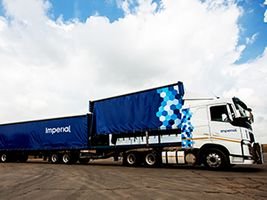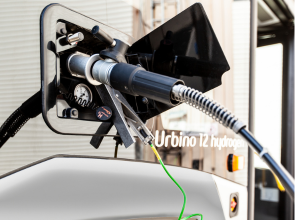Imperial, Sasol to develop hydrogen mobility ecosystem in Southern Africa
The partnership will develop viable and sustainable, greener supply chain solutions benefiting the logistics and supply chain industry.

Imperial Logistics and Sasol South Africa will collaborate to co-develop Southern Africa’s hydrogen mobility ecosystem.
The collaboration can benefit from Sasol’s expertise in hydrogen production and refuelling infrastructure and Imperial’s expertise in fleet management, its extensive transport footprint and superior end-to-end supply chain solution capabilities. Both Sasol and Imperial are keen on using fuel cell electric (FCE) trucks to decarbonise heavy-duty long-haul trucking.
The two companies will also be evaluating potential cross-border collaboration. Sasol aims to play a leading role in the co-creation and development of hydrogen ecosystems to decarbonise hard to abate sectors such as transportation, using green hydrogen produced at its operations facilities leveraging existing process equipment and proprietary technology.
Mohammed Akoojee, Imperial’s Group CEO, said, “This strategic partnership with Sasol, a long-standing and valued Imperial client, helps cement our commitment to a just transition to a low carbon economy, and is another step towards positioning Imperial at the forefront of alternative energy fleets.”
Priscillah Mabelane, Executive VP of Sasol’s Energy Business, said, “Green hydrogen can help tackle various critical energy challenges and is positioned for rapid global growth as the pathway of choice to decarbonise, amongst others, the long haul transport sector.”
Imperial is one of Southern Africa’s major fleet operators aiming to reduce its carbon footprint by exploring a range of alternative truck technologies, especially FCE trucks, which is a viable zero-carbon solution. Last week, Imperial also partnered with the South African liquefied natural gas (LNG) supplier, DNG Energy, to test the feasibility of using LNG as an alternative to diesel in a pilot to support a net-zero carbon transport sector in South Africa.
Meanwhile, Sasol and Haldor Topsoe expanded their G2L collaboration last week to jointly license and develop their technologies for sustainable liquid fuels and chemicals production through Fischer-Tropsch technology. Both partners now offer integrated end-to-end solutions to produce sustainable fuels and chemicals, specifically Power-to-Fuels or e-Fuels, utilising sustainable carbon sources or CO2, green hydrogen and renewable energy.
This month, Sasol and the National Research Foundation (NRF) also called for research proposals on science and engineering projects to enable its energy transition and that of the country and the development of South Africa’s green economy. Of interest to Sasol is research in hydrogen production, renewable energy, energy storage and carbon dioxide conversion to chemicals and fuels.
